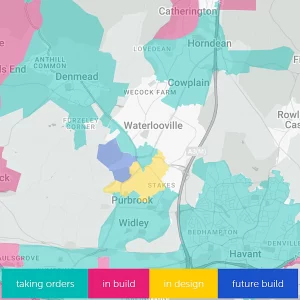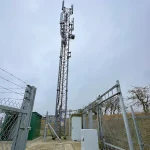Sponsored Links
Ofcom UK Allows Mobile Broadband Spectrum Trading Between Operators
Posted: 20th Jun, 2011 By: MarkJ

 The communications regulator, Ofcom UK, has today "given the go-ahead" for Mobile Network Operators (MNO) to boost their Mobile Broadband network capacity, speeds and reliability by allowing them to trade their wireless network licences in the 900MHz, 1800MHz and 2100MHz (radio frequency) spectrum bands.
The communications regulator, Ofcom UK, has today "given the go-ahead" for Mobile Network Operators (MNO) to boost their Mobile Broadband network capacity, speeds and reliability by allowing them to trade their wireless network licences in the 900MHz, 1800MHz and 2100MHz (radio frequency) spectrum bands.The move is essentially designed to allow operators with a greater need for spectrum, such as Three (3) UK, to make offers for spectrum from those who need it less. In an ideal world this would allow MNO's to "respond more efficiently to demand", although such trading is likely to come at a price and in some cases could even give rise to competition concerns.
Ofcom Statement
Over the past two decades, mobile phone companies in the UK have acquired licences for blocks of spectrum. In general, the more spectrum an operator holds, the more telephone conversations and internet traffic it can carry over its network. Not all operators hold the same amount of spectrum, and the level of demand for mobile services also differs from area to area.
By allowing operators to trade their spectrum, Ofcom believes that there will be greater opportunity to use it more efficiently. Ultimately, it is believed that this will bring benefits to citizens and consumers in terms of improved mobile services.
As part of a wider initiative to promote improvements in mobile services, the Government directed Ofcom to make mobile spectrum licences tradable in December 2010. Ofcom has now made the regulations necessary for this to happen.
Over the past two decades, mobile phone companies in the UK have acquired licences for blocks of spectrum. In general, the more spectrum an operator holds, the more telephone conversations and internet traffic it can carry over its network. Not all operators hold the same amount of spectrum, and the level of demand for mobile services also differs from area to area.
By allowing operators to trade their spectrum, Ofcom believes that there will be greater opportunity to use it more efficiently. Ultimately, it is believed that this will bring benefits to citizens and consumers in terms of improved mobile services.
As part of a wider initiative to promote improvements in mobile services, the Government directed Ofcom to make mobile spectrum licences tradable in December 2010. Ofcom has now made the regulations necessary for this to happen.
But who would use it? Larger operators won't wish to give any spectrum away without being able to extract a good profit; otherwise they could lose some of their competitive advantage. Likewise the 800MHz and 2.6GHz band auctions are just around the corner and spectrum trading could also form a part of that process.
Meanwhile the government would still very much like to see both O2 and Vodafone sharing out some of their prized 900MHz band. So far they haven't had much luck with that. The new measures should come into force on 4th July 2011.
Separately Ofcom has also decided to vary the existing 2100MHz 3G Mobile Wireless Telegraphy Act licences. This would require related mobile operators to ensure that 90% of the UK could "receive the [3G Mobile Broadband] service with a sustained downlink speed of not less than 768Kbps in a lightly loaded cell" by 30th June 2013. That's somewhat shy of the government's 2Mbps minimum speed target.
Ofcom Spectrum Trading (PDF)
Ofcom Variation of 2100MHz Licences (PDF)
Search ISP News
Search ISP Listings
Search ISP Reviews
Latest UK ISP News








Cheap BIG ISPs for 100Mbps+
150,000+ Customers | View More ISPs
Cheapest ISPs for 100Mbps+
Modest Availability | View More ISPs
Latest UK ISP News
Helpful ISP Guides and Tips
Sponsored Links
The Top 15 Category Tags
- FTTP (6798)
- BT (3881)
- Politics (3074)
- Business (2766)
- Openreach (2663)
- Building Digital UK (2512)
- Mobile Broadband (2475)
- FTTC (2142)
- Statistics (2127)
- 4G (2092)
- Virgin Media (2024)
- Ofcom Regulation (1779)
- 5G (1732)
- Fibre Optic (1604)
- Wireless Internet (1595)
Sponsored
Copyright © 1999 to Present - ISPreview.co.uk - All Rights Reserved - Terms , Privacy and Cookie Policy , Links , Website Rules































